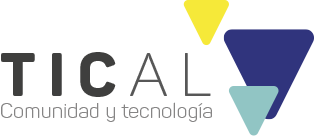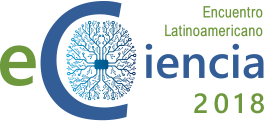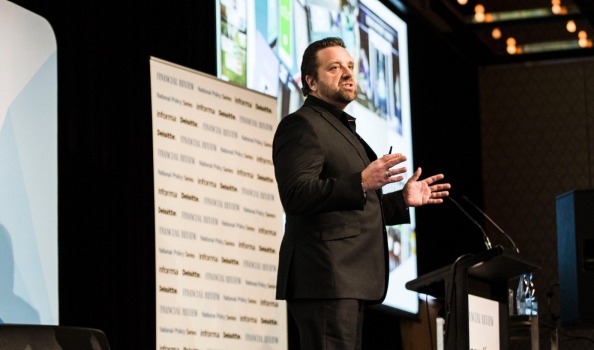How did start the story that led an Argentine to move his family - with three very little children - to live in Australia and become a kind of rock star in the world of ICT and within it, in the complex university scene? It started with his need of offering a better quality of life to his family. That is what led William Confalonieri in a journey that, among other things, made him winner of the CIO of the Year at the Australian Executive Awards (CEO Magazine) in 2016, and two years later of the same award, granted by IT News, recognizing the Deakin Genie project as Australia’s top IT project. In September he will be one of the main characters of the plenary sessions that will gather TICAL2018 and the 2nd Latin American e-Science Meeting in the Las Americas Convention Center, in Cartagena de Indias, which is the reason why we invited him to have this conversation that we know will awaken your desire to know him and to be awaiting the chance of learning from his experience.
María José López Pourailly
What would you say is the contribution of digitization to university work?
Well, if we understand digitization in its broadest sense, that is, the contribution of ICT and digital innovations, I would say that the contribution to the university and the university model is enormous, at least in the university model in which I work. Technology is basically at the heart of all operations, from managing all the processes of the professional and administrative part of the university, to providing platforms for teaching and learning, laboratories, experiments and support for students life in general. Everything has a large technology component. On the other hand, technology and digitalization are permanently affecting and changing the pedagogy, the way in which the teaching service is applied. That is an important component. Finally, we are entering an era where digital technology and innovation are generating a great impact in the organizations, not only in universities, but in all organizations. More importantly, those that are devoted to providing services, are affected by them from the root.
The level of change required to survive in the upcoming years is enormous and only those organizations that are able to see what is necessary and change in that direction, will be able to survive in the long term. Again, the "driver", the motivation of that change, is technology and digitalization.
How did you decide to build a digital transformation agenda until 2020 for Deakin University?
Well, it was not my decision to create it. At the beginning of 2012, as a result of the arrival of a new President, I was recruited by the University. The President envisioned that Deakin had to take advantage of all the digital movement that was transforming the world. As a consequence of that, I was chosen as the first CIO of the university; before there was an IT Support function for the university, but my role came with the mandate to place Deakin as one of the global leaders in terms of digital innovation.
The description of my role was not only a service provider, it was expected that IT would influence the strategy of the university in the right direction to be successful and survive the different waves of digital transformation that would affect all organizations. Thus, as of 2012, the entire executive level of the university worked to create a new strategy, and an important part of this was the "moto" we chose: "Driving the digital fronteer". It was a clear indication that we wanted to do things differently and better than most institutions in this digital aspect. That was the 2020 agenda of the university; it was an aspiration, there was no detailed plan.
From that point, with my team we started preparing annual and three-year plans on technology and digital innovation, which were refreshed during all these years. The aspirations remain the same, but the plans are open and every three years I rewrite a digital strategy that has an annual chapter.
What was the process and which were the steps you had to follow to achieve the goal of building the digital transformation agenda?
The process was basically to understand what was the situation at that moment, and which was the final goal, and try to understand the path we should follow towards the future and the components that we had to work with. Obviously a central issue was to work with my team, to handle the cultural issues of the team I received -formed, then, by 250 people, and today, by 450-, and to understand ans solve certain problems of focus on certain things... the team members came from an administration that saw technology nothing more than as a support and not as a force for change, so we had to make many cultural changes, incorporate new disciplines, in some cases make people change and give my team the power it needed.
On the other hand I had to work with the organization and it was a very important political work, in the sense of getting a new place, one that was not the traditional one for the discipline of technology and the digital area. Even I was the only person in Australia, for many years, and I think I'm still the only one in the university sector, that being responsible for the digital area, has a seat at the executive table. In all other cases in Australia, the IT function is one level down, it does not participate in making strategic decisions. We had a lot of work to get and keep that place, and to convince the organization that a different way of working was possible.
Of course, in addition to that, it was a lot about understanding what the reality of the industry was in terms of innovation, tools, platforms, and imagining something better, imagining that it was possible to do in a certain time what would put us ahead of what the rest. It was about dreaming and inspiring and coming up with very ambitious projects that, today I can say, gave us a formidable advantage compared to other universities at national and international level, of course.
What subjects would you highlight as the most relevant of this digital transformation agenda?
I always say that technology, that the technological part, is the easy part and the complex part is when we have to incorporate the human part. What I mean is that the whole process of managing people, interacting with people or creating influence is the difficult part. As I said before, putting my team in the right place, with all the capabilities and all the necessary opportunities, was a very big work. Creating influence and putting our area at the highest level of the organization, to operate with ambitious plans, always requires a huge political effort. Having influence across the organization, to really make the agenda a reality, is also vital; all the management of that change, of the way to behave and understand the things that the organization has, is fundamental.
I always say that the answer to digital disruption or the process of digital transformation is not technological, it is -first of all- philosophical. You have to start to understand things in a different way, and that will be one of the topics of my presentation in TICAL. Clearly, the philosophy and the way the organization understands this process is fundamental. If an organization is only concerned with improving the technology, it will not go anywhere. It is necessary to change the DNA and actually respond to the environment in a completely different way from the organizational point of view. So the change is mainly philosophical and then technological.
Is it possible to imagine a university without ICT?
Not really. It's really hard to try to imagine anything, any organization without a core of technology that makes the operation possible. I have a very specific vision about the university model, but to understand my vision it is necessary to understand that the university model in which I work is very developed; we have a lot of resources to invest in technology, and that is why we are much closer to the vision that I am going to propose. But I think that in the future, in not many years, the university experience will become completely disruptive. The game will completely change when we get maturity with respect to technologies like AI, augmented reality, contextual technology... all these things will converge on a model that will make the college experience be much bigger in the living room of your home than in a physical place in a physical university. I believe that the days of physical campuses and physical universities are numbered. There will be exceptions, but the university model, the teaching model of the future, in my point of view, will have two characteristics: it will be totally digital and remote, and highly personalized, based on intelligent agents and augmented reality. Something no university, no entity, has been able to do so far, which is to provide highly personalized teaching on a massive level, these technologies that I have mentioned before will do so; the traditional university we know today will be a poor experience compared to what will be possible in the future. Therefore, it is inot only mpossible to imagine a university without technology today, but information technologies will cause a total disruption in the university model in the upcoming years.
What are your expectations regarding TICAL2018 and what can we expect from your presentation?
Well, from a professional point of view, I've been away from Latin America for thirteen years. Although I frequently travel for personal reasons, I am not aware of the professional reality in this region, so it will be very interesting to contact and complement my vision. I have traveled the world for different conferences and I confess that I need to complete this vision with the Latin American experience.
About my presentation, I think I can provide a very interesting perspective. Together with my organization and team we have been doing really interesting things in recent years, we have won many awards on a global level in terms of innovation and with our successes and mistakes we have learned a lot in this process. The contribution of the experience is phenomenal. I am sure that I can present a very provocative and interesting perspective.






